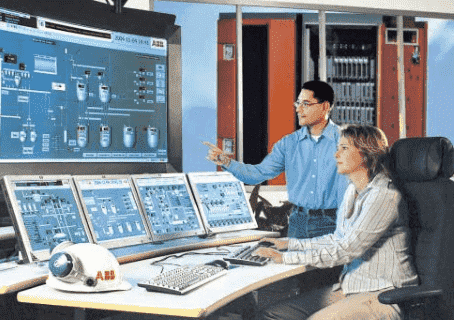COURSE OVERVIEW
INSTRUMENTATIONS, CONTROL, TELECOMMUNICATIONS & COMPUTER ENGINEERING

OVERVIEW
| COURSE TITLE | : | IE0150 : Distributed Control System (DCS) Principles, Applications, Selection & Troubleshooting |
| COURSE DATE | : | Jun 03 - Jun 06 2024 |
| DURATION | : | 4 Days |
| INSTRUCTOR | : | Mr. Attalla Ersan Days |
| VENUE | : | Dubai, UAE |
| COURSE FEE | : | $ 4500 |
| Register For Course Outline | ||
OTHER SCHEDULED DATES
| Date | : | Mar 04 - Mar 07 (4 Days) | Location | : | Doha, Qatar | Classroom Fee (US$) | : | $ 5500 | Course Info |
| Date | : | Sep 02 - Sep 05 (4 Days) | Location | : | Al Khobar, KSA | Classroom Fee (US$) | : | $ 4500 | Course Info |
Course Description
This practical and highly-interactive course includes various practical sessions and exercises. Theory learnt will be applied using one of our state-of-the-art simulators. Since its inception, the concept of Distributed Control Systems has swept alternative control technologies from the field. The substantial growth in grass-roots construction of plants in the traditional heavy process industries, such as power generation, refining, oil and gas, water and petrochemicals is driving significant growth in the utilization of Distributed Control Systems (DCS). The broad architecture of a solution involves either a direct connection to physical equipment, such as switches, pumps and valves or connection via a fieldbus communication system. With the advent of high speed data highways and locally collected plant information, Distributed Control Systems are being used to reduce cabling costs, as well as the implementation of advanced control strategies. The course will cover the practical applications of Distributed Control Systems. The course is based on a selection of subjects that either have had a strong impact on distributed systems today, or explore novel ideas which may be important in the future. Other subjects cover important aspects of distributed systems such as data communications, SCADA and Safety Instrumented Systems plus PLC applications. The course also looks at the different methods of tuning three term controllers using the various Zeigler- Nichols approaches. link to course overview PDF
TRAINING METHODOLOGY
This interactive training course includes the following training methodologies as a percentage of the total tuition hours
LecturesWorkshops & Work Presentations
Case Studies & Practical Exercises
Videos, Software & Simulators
In an unlikely event, the course instructor may modify the above training methodology before or during the course for technical reasons.
VIRTUAL TRAINING (IF APPLICABLE)
If this course is delivered online as a Virtual Training, the following limitations will be applicable
| Certificates | : | Only soft copy certificates will be issued to participants through Haward’s Portal. This includes Wallet Card Certificates if applicable |
| Training Materials | : | Only soft copy Training Materials (PDF format) will be issued to participant through the Virtual Training Platform |
| Training Methodology | : | 80% of the program will be theory and 20% will be practical sessions, exercises, case studies, simulators or videos |
| Training Program | : | The training will be for 4 hours per day starting at 09:30 and ending at 13:30 |
| H-STK Smart Training Kit | : | Not Applicable |
| Hands-on Practical Workshops | : | Not Applicable |
| Site Visit | : | Not Applicable |
| Simulators | : | Only software simulators will be used in the virtual courses. Hardware simulators are not applicable and will not be used in Virtual Training |
RELATED COURSES

IE0236 : Safety Integrity Level/Layer of Protection Analysis (SIL/LOPA)
- Date : May 20 -May 23 / 3 Days
- Location : Al Khobar, KSA
- Course Details Register

IE0273 : Process Controller, Control Loop & Valve Tuning
- Date : May 20 -May 23 / 3 Days
- Location : Doha, Qatar
- Course Details Register

IE0560 : SCADA System
- Date : Oct 06 -Oct 10 / 3 Days
- Location : Dubai, UAE
- Course Details Register

IE0030 : Process Control & Instrumentation
- Date : May 20 -May 23 / 3 Days
- Location : Istanbul, Turkey
- Course Details Register
